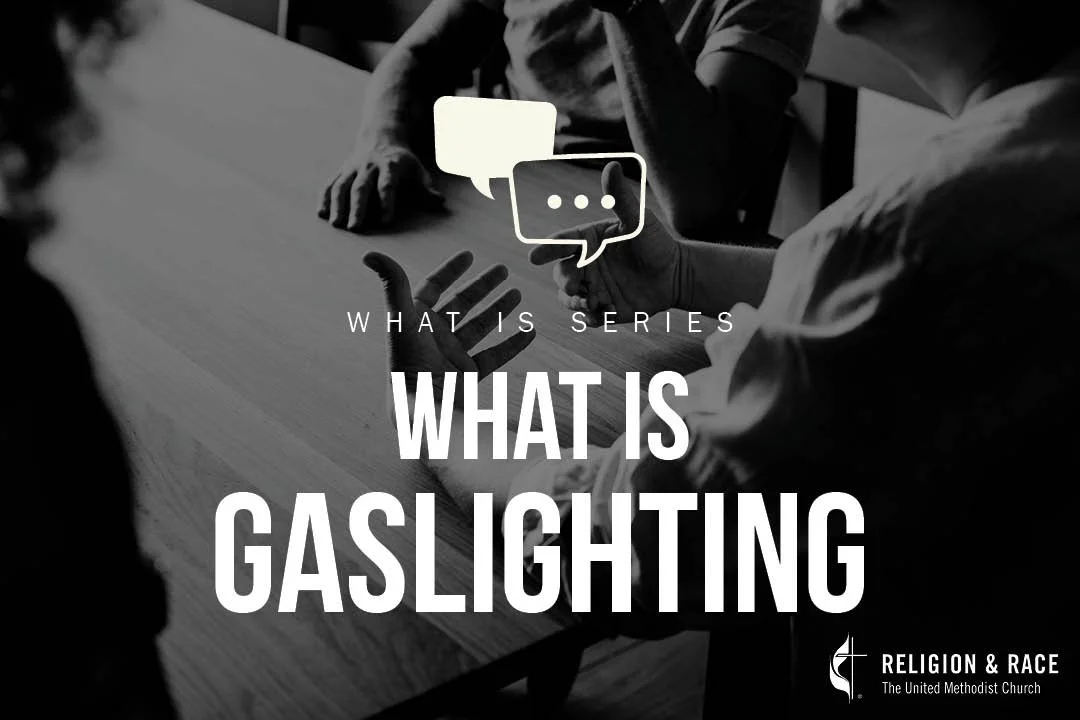What Is Gaslighting?
As humanity’s understanding and discussion of the concepts of race, racism, and antiracism have evolved over generations, so have the words and phrases we use as we continue the work of obeying God and advancing racial justice.
In this “What Is?” series, the General Commission on Religion and Race offers this compilation of concise definitions, examples, and Biblical/theological foundations to create common vocabulary for Christians as we engage in anti-racism work.
Our hope, as you engage this series, is that the learning equips you to move into deeper waters in anti-racism work in your respective context.
Visit the series homepage for more information on other anti-racism resources.
Definition:
The word “gaslight” is derived from a 1938 stage play by Patrick Hamilton titled “Gas Light,” in which a husband psychologically manipulates his wife into doubting her own perceptions. Gaslighting is thus defined as a form of psychological manipulation and abuse in which someone is made to question their own memory, perception, and sanity.
Example(s) of Gaslighting:
Perpetrators of gaslighting can consciously and unconsciously target an individual or members of a vulnerable population by sowing seeds of doubt, denying the facts about their experiences, their environment, and their feelings.
A person or a group of people experiencing gaslighting are often accused of: making a big deal out of nothing, taking things too personally or seriously, being too sensitive or emotional, jumping to the wrong conclusion, being “crazy” or “insane,” being too dramatic, not thinking clearly or overthinking things, being paranoid, being lazy, not taking advantage of opportunities, being upset over nothing, living in the past or holding on to the past, lying, imagining things, being too defensive, needing help, etc.
For a concrete example, see the more information section resources.
Biblical/Spiritual/Theological Framing or References:
Manipulating someone else’s perceptions of an event or idea is an age-old practice, to which the biblical writers attest in the creation narrative of the first humans, found in Genesis 3. In this passage, Eve is manipulated by the Serpent into questioning the reality and memory of what she knew to be true about her relationship with God and then asserts that her account is wrong. The seed of doubt planted by the serpent yielded devastating consequences for Eve and Adam, severing their relationship with God, each other, and creation (Genesis 3). While most Christians relate more to Eve and Adam, who fall prey to the serpent’s antics in this story, the truth of the matter is we also have tendencies of the serpent within us, making us vulnerable to perpetrating gaslighting upon our neighbor. Perhaps the caution for those of us who follow the way of Jesus Christ is to always be watchful that we are not twisting and shaping God’s word to suit our own purposes, at the expense of our neighbor.
Reflection Questions:
What new insight have you gained about the term gaslighting?
What is the difference between having a disagreement with someone and gaslighting them?
Do you think gaslighting is an issue in the Church? Why or why not?
What action can you take to guard yourself against gaslighting?
Additional Resources:
5 Signs it’s Gaslighting, Not a Disagreement (From Psych2Go)
10 Examples of What Gaslighting Sounds Like (From Psych2Go)
5 Signs You're Gaslighting Someone, Even If You Don't Mean To (From Psych2Go)

